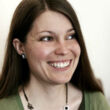A City on Mars: Can we settle space, should we settle space, and have we really thought this through?
(Libby/OverDrive eAudiobook)
Available Platforms
Description
More Details
Excerpt
Similar Titles From NoveList
Similar Authors From NoveList
Published Reviews
Booklist Review
The wife-and-husband writing team who penned Soonish (2017), a biologist and a cartoonist, respectively, take on the rough realities of space settlement in their immersive and entertaining examination of how close humanity actually is to living among the stars. The Weinersmiths are upfront about their major reservations about human beings living in space anytime soon as they delve into the realities that might keep people earthbound for the foreseeable future. The most notable one might be humankind's own biology, which is specifically designed for Earth's atmosphere and gravity; the astronauts at the International Space Station have seen their bone mass and muscles shrink during their months in space. The Weinersmiths also note that since no one has ever tried to get pregnant or give birth in space, there's no scientific data on what less gravity and more radiation would do to a fetus or a newborn. Biology isn't the only barrier; finding a suitable habitat, sourcing material and energy, and even navigating space law, born out of the geopolitical competition between the U.S. and the Soviet Union in the 1960s, all present daunting challenges. Despite their conclusion that humanity isn't quite ready for life in space, the Weinersmiths' passion and enthusiasm shine through every page of this absorbing, lively exploration.
Publisher's Weekly Review
"There is no urgent need to settle space" and "most of the pro-settlement arguments are wrong," argue Kelly Weinersmith, a behavioral ecology professor at Rice University, and her cartoonist husband Zach in the wickedly irreverent follow-up to their 2017 collaboration, Soonish. They contend it will likely take centuries to overcome the logistical challenges--including the development of long-term waste management systems and laws to settle conflicts over sovereignty--posed by establishing a colony on Mars, the moon, or a free-floating space station. The Weinersmiths explore other critical issues, such as how to have sex in reduced gravity ("The physics will be a little tricky because every action has an equal and opposite reaction") and generate energy (harnessing solar power on Mars would be complicated by the fact that "the day is about half as bright" as on Earth). They also gleefully tear down frequently cited reasons for settling space, suggesting that "leaving a 2°C warmer Earth for Mars," which has an average surface temperature of -60°C, "would be like leaving a messy room so you can live in a toxic waste dump." The cheeky tone is loads of fun, and Zach's humorous illustrations of, for instance, contraptions proposed to facilitate zero-gravity sex, entertain. It adds up to a boisterous takedown of techno-utopianism. Illus. (Nov.)
Library Journal Review
Elon Musk has suggested that a city-size colony on Mars could be in place within 30 years of arrival. Here spouses Kelly (a bioscientist) and Zach Weinersmith (a cartoonist) examine the obstacles to Mars living. The challenges of life in outer space have been overcome on a small-scale and short-term basis, but the long-term requires more research about the effects of radiation, low gravity, and temperature extremes, the authors argue. Much is currently unknown, from the long-term effects on the human body to specifics about health, fertility, procreation, and child development. Providing breathable air for a city and governing large numbers of people on Mars must also be considered. How many people are needed to create a sustainable population? Will corporations provide housing, food, medical care, and transportation? What happens when there is a conflict? The authors bring a marvelous zest to their narration of the book's interstitial "nota bene" sections, while primary narrator Brittany Pressley performs the bulk of the book with enthusiasm and perfect timing and brings out the authors' often humorous arguments and fascinating asides. VERDICT The Weinersmiths' (Soonish) lighthearted and accessible production is food for thought about space settlement, highlighting the many issues that must be addressed before humankind can realistically consider such an endeavor.--Joanna M. Burkhardt
Kirkus Book Review
An entertaining illustrated assessment of space settlement. This book is, to put it simply, a romp. The Weinersmiths published a similar book in 2017, Soonish: Ten Emerging Technologies That'll Improve and/or Ruin Everything, and their latest deals with the practical problems of creating settlements in space. The authors, self-described "space geeks" who "love visionary plans for a glorious future," collected a huge amount of research material for the project. They started out as optimistic about the prospects for space colonies, but the more they learned, the more they understood the staggering resource costs and the complex technical problems. Much of the recent interest in space settlements stems from the shrinking costs of putting satellites into low orbit, but this does not transfer into the cost of moving the needed materials to the moon, Mars, a space station, or another planet. Moreover, research into the long-term effects of low gravity on human biology does not bode well. The Weinersmiths have a good time discussing the difficulty of human reproduction in non-Earth environments, but for a settlement meant to be self-sustaining, it would be a real issue. An even more difficult question involves the laws that would apply, as existing treaties are clearly outdated. Despite the optimism of SF writers and the current crop of adventurous billionaires, the authors believe that space settlements would probably replicate the conflicts and divisions of Earth-bound societies: Humans, after all, remain human. Though the authors strike a humorous tone, they don't neglect serious topics, and they do believe that one day space will be colonized. However, the timeline is centuries rather than decades, and there must be more focus on the practical realities than on visionary hyperbole. One way or another, this book has a lot to offer. A fun, informative read that puts the pop into popular science. Copyright (c) Kirkus Reviews, used with permission.
Booklist Reviews
*Starred Review* The wife-and-husband writing team who penned Soonish (2017), a biologist and a cartoonist, respectively, take on the rough realities of space settlement in their immersive and entertaining examination of how close humanity actually is to living among the stars. The Weinersmiths are upfront about their major reservations about human beings living in space anytime soon as they delve into the realities that might keep people earthbound for the foreseeable future. The most notable one might be humankind's own biology, which is specifically designed for Earth's atmosphere and gravity; the astronauts at the International Space Station have seen their bone mass and muscles shrink during their months in space. The Weinersmiths also note that since no one has ever tried to get pregnant or give birth in space, there's no scientific data on what less gravity and more radiation would do to a fetus or a newborn. Biology isn't the only barrier; finding a suitable habitat, sourcing material and energy, and even navigating space law, born out of the geopolitical competition between the U.S. and the Soviet Union in the 1960s, all present daunting challenges. Despite their conclusion that humanity isn't quite ready for life in space, the Weinersmiths' passion and enthusiasm shine through every page of this absorbing, lively exploration. Copyright 2023 Booklist Reviews.
Publishers Weekly Reviews
"There is no urgent need to settle space" and "most of the pro-settlement arguments are wrong," argue Kelly Weinersmith, a behavioral ecology professor at Rice University, and her cartoonist husband Zach in the wickedly irreverent follow-up to their 2017 collaboration, Soonish. They contend it will likely take centuries to overcome the logistical challenges—including the development of long-term waste management systems and laws to settle conflicts over sovereignty—posed by establishing a colony on Mars, the moon, or a free-floating space station. The Weinersmiths explore other critical issues, such as how to have sex in reduced gravity ("The physics will be a little tricky because every action has an equal and opposite reaction") and generate energy (harnessing solar power on Mars would be complicated by the fact that "the day is about half as bright" as on Earth). They also gleefully tear down frequently cited reasons for settling space, suggesting that "leaving a 2°C warmer Earth for Mars," which has an average surface temperature of -60°C, "would be like leaving a messy room so you can live in a toxic waste dump." The cheeky tone is loads of fun, and Zach's humorous illustrations of, for instance, contraptions proposed to facilitate zero-gravity sex, entertain. It adds up to a boisterous takedown of techno-utopianism. Illus. (Nov.)
Copyright 2023 Publishers Weekly.Reviews from GoodReads
Citations
Weinersmith, K., Weinersmith, Z., & Pressley, B. (2023). A City on Mars: Can we settle space, should we settle space, and have we really thought this through? (Unabridged). Books on Tape.
Chicago / Turabian - Author Date Citation, 17th Edition (style guide)Weinersmith, Kelly, Zach Weinersmith and Brittany Pressley. 2023. A City On Mars: Can We Settle Space, Should We Settle Space, and Have We Really Thought This Through?. Books on Tape.
Chicago / Turabian - Humanities (Notes and Bibliography) Citation, 17th Edition (style guide)Weinersmith, Kelly, Zach Weinersmith and Brittany Pressley. A City On Mars: Can We Settle Space, Should We Settle Space, and Have We Really Thought This Through? Books on Tape, 2023.
Harvard Citation (style guide)Weinersmith, K., Weinersmith, Z. and Pressley, B. (2023). A city on mars: can we settle space, should we settle space, and have we really thought this through? Unabridged Books on Tape.
MLA Citation, 9th Edition (style guide)Weinersmith, Kelly, Zach Weinersmith, and Brittany Pressley. A City On Mars: Can We Settle Space, Should We Settle Space, and Have We Really Thought This Through? Unabridged, Books on Tape, 2023.
Copy Details
| Collection | Owned | Available | Number of Holds |
|---|---|---|---|
| Libby | 3 | 1 | 2 |




































